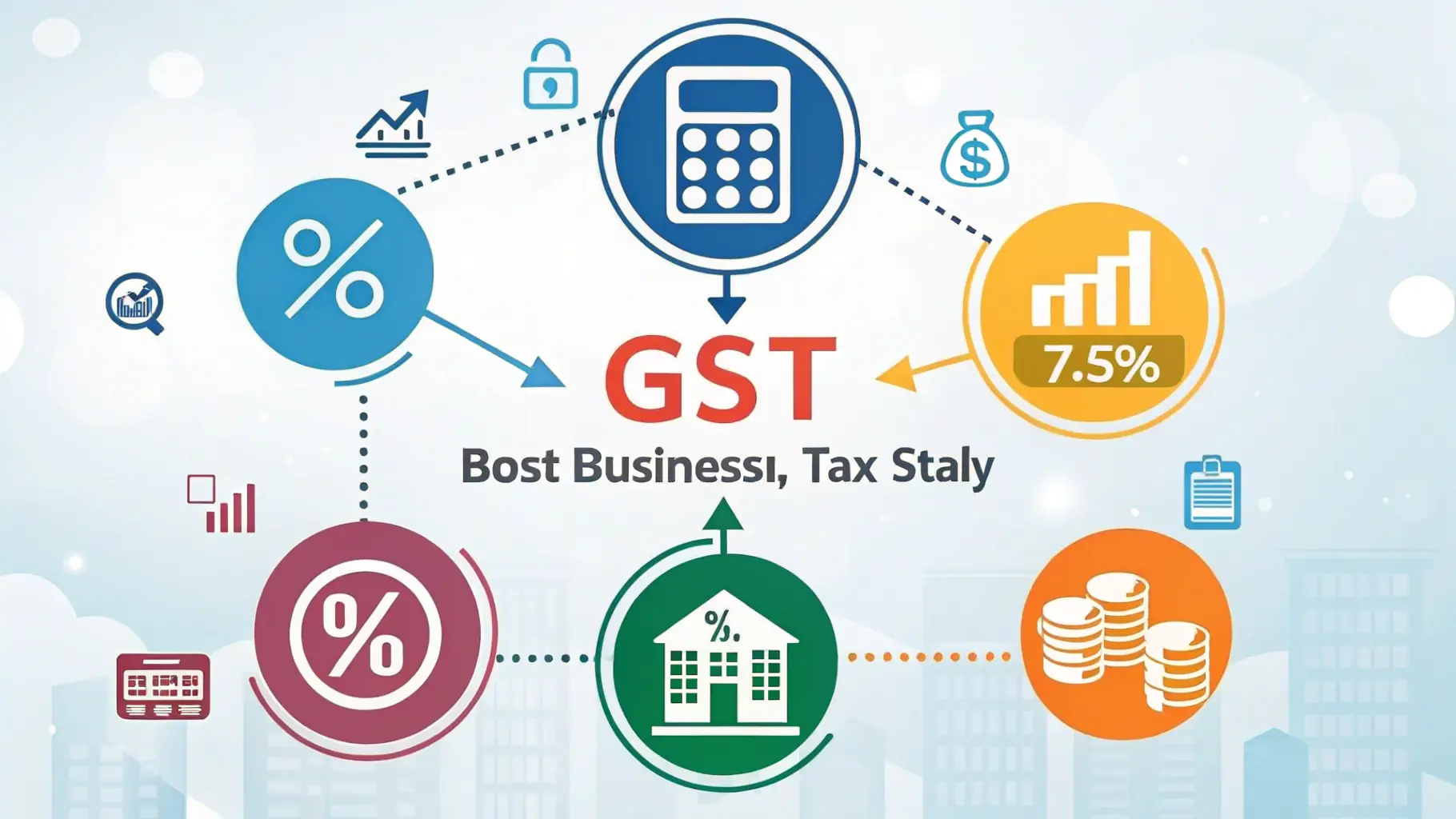Meta Description:
Learn how to stay compliant with GST in Australia. This guide covers GST registration, reporting, common mistakes, and tools for small businesses.
✅ What is GST and Who Needs to Register?
The Goods and Services Tax (GST) is a broad-based 10% tax on most goods and services sold in Australia. As a small business owner, you must register for GST if:
Your business has a GST turnover of $75,000 or more per year
You provide taxi, ride-sourcing, or limousine services (regardless of turnover)
You want to claim GST credits on your purchases
📌 If you’re unsure, it’s better to register early than to miss the threshold and face ATO penalties.
📝 How to Register for GST
Registering for GST can be done in several ways:
Through your MyGov or Business Portal
With the help of a registered BAS or Tax agent
Via ATO phone support if needed
Once registered, you’ll receive an Australian Business Number (ABN) and will need to include GST on invoices and submit regular BAS statements.
📊 What is a BAS? And When Do You Lodge It?
The Business Activity Statement (BAS) is how you report GST and other tax obligations to the ATO. It includes:
GST collected from your sales
GST paid on business purchases (credits)
PAYG withholding (if you have employees)
Fuel tax credits (if applicable)
You must lodge your BAS:
Quarterly – if your turnover is less than $20M
Monthly – if your turnover is higher, or required by ATO
Annually – only for voluntary GST registration
📌 Lodgement deadlines are strict. Late BAS lodgement can result in fines and interest.
💰 How to Calculate GST Payable or Refundable
Your GST payable to the ATO is calculated as:
GST Collected (Sales) – GST Paid (Purchases) = GST Payable or Refundable
If the result is positive, you pay the difference to the ATO
If negative, you get a GST refund
Using cloud accounting software like Xero, MYOB or QuickBooks makes this process much easier and reduces errors.
⚠️ Common GST Mistakes Small Businesses Make
Even experienced business owners make these GST errors:
Not registering for GST once turnover crosses $75k
Claiming GST on non-GST purchases (e.g. bank fees, overseas services)
Including GST in income twice (e.g. when using gross income in accounting)
Missing BAS lodgement deadlines
Not issuing compliant tax invoices
🔍 Remember: Not all suppliers charge GST—especially those in farming, education, or exports.
💼 Tools to Stay GST Compliant
Here are tools small businesses use to stay on top of GST:
| Tool | Purpose |
|---|---|
| Xero | Automated GST tracking & BAS reports |
| MYOB | Invoicing, payroll, and GST management |
| QuickBooks | Cloud-based bookkeeping & GST filing |
| Dext/Hubdoc | Receipts capture for GST records |
✅ These tools integrate with your bank, saving you time and reducing errors.
👩💼 Do You Need a BAS or Tax Agent?
While you can manage GST yourself, many small businesses choose to work with:
A BAS Agent for help with BAS, GST, and payroll
A Tax Agent for broader support with tax returns and planning
At EMUTAX, we are registered agents who help small businesses:
Stay compliant with GST rules
Lodge accurate and timely BAS
Maximise GST credits
Avoid penalties
📌 GST Compliance Checklist for Small Businesses
✅ Are you registered for GST if over $75,000 turnover?
✅ Do you issue tax invoices with the correct format?
✅ Are you tracking GST on purchases properly?
✅ Have you set BAS reminders?
✅ Are you using cloud accounting to automate reports?
✅ Do you have professional support if unsure?
🚀 Get Help with GST and BAS from EMUTAX
Managing GST doesn’t have to be stressful. At EMUTAX, we provide tailored BAS & GST support for small businesses across Australia. Whether you’re starting out or scaling up, we’ll help you stay compliant and in control.
Disclaimer: This article is general in nature and not a substitute for personal tax advice. Please consult a registered tax or BAS agent.



